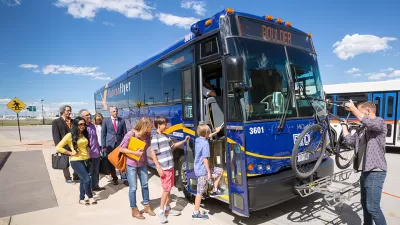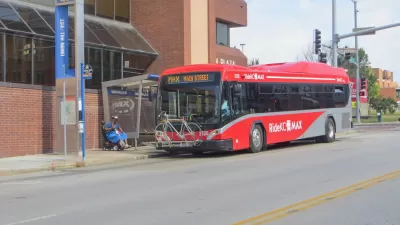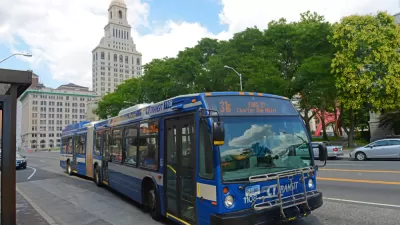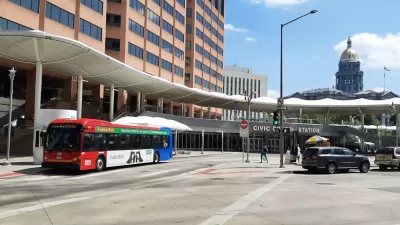The Colorado city will make public transit free during the month of August to boost ridership and reduce emissions.

Last week, the City of Boulder and the Regional Transportation District (RTD) announced Zero Fare for Better Air, “a collaborative, statewide initiative designed to reduce ground-level ozone by increasing use of transit,” according to a press release from the city.
“Through a partnership with the Colorado Energy Office, made possible by Colorado Senate Bill 22-180, RTD will offer zero fares on all services during the month of August. The City of Boulder is also partnering with Via Mobility Services to provide zero-fare service on the local Boulder HOP bus route.” The one-month program aims to encourage more Boulder residents to try local public transportation options. In addition to eliminating up to 20 pounds of daily carbon dioxide emissions by switching to public transit, “A household can save nearly $10,000 by taking public transportation and living with one less car.”
“The city’s 2019 Transportation Master Plan (TMP) recommends zero fare for local and regional transit services as a strategy to enhance equity, promote access to opportunity, and reduce greenhouse gas emissions through modal shift and increased transit ridership.”
FULL STORY: City of Boulder joins RTD for Zero Fare for Better Air in August

Planetizen Federal Action Tracker
A weekly monitor of how Trump’s orders and actions are impacting planners and planning in America.

Chicago’s Ghost Rails
Just beneath the surface of the modern city lie the remnants of its expansive early 20th-century streetcar system.

San Antonio and Austin are Fusing Into one Massive Megaregion
The region spanning the two central Texas cities is growing fast, posing challenges for local infrastructure and water supplies.

Since Zion's Shuttles Went Electric “The Smog is Gone”
Visitors to Zion National Park can enjoy the canyon via the nation’s first fully electric park shuttle system.

Trump Distributing DOT Safety Funds at 1/10 Rate of Biden
Funds for Safe Streets and other transportation safety and equity programs are being held up by administrative reviews and conflicts with the Trump administration’s priorities.

German Cities Subsidize Taxis for Women Amid Wave of Violence
Free or low-cost taxi rides can help women navigate cities more safely, but critics say the programs don't address the root causes of violence against women.
Urban Design for Planners 1: Software Tools
This six-course series explores essential urban design concepts using open source software and equips planners with the tools they need to participate fully in the urban design process.
Planning for Universal Design
Learn the tools for implementing Universal Design in planning regulations.
planning NEXT
Appalachian Highlands Housing Partners
Mpact (founded as Rail~Volution)
City of Camden Redevelopment Agency
City of Astoria
City of Portland
City of Laramie





























